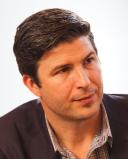Leadership
What Can Ordinary People Do to Address Social Polarization?
10 principles to sustain everyday leadership for the common good
Updated March 11, 2024 Reviewed by Gary Drevitch
Key points
- Societies across the West are increasingly polarized, divided, and stuck.
- In the face of systemic challenges like polarization, it is easy to feel hopeless and overwhelmed.
- There is much that individuals can do to practice everyday leadership for the common good.
by Samuel Wilson and Scott Ko
Societies across the West are divided and stuck. As revealed by the 2023 Edelman Trust Barometer, Western societies are becoming increasingly polarized. The US is severely polarized and the UK, France, and the Netherlands are in danger of severe polarization. Canada, Ireland, and Australia are on a path to polarization.
What are the predictors of public perceptions of polarization? Among Australians, to consider just one Western society, the Edelman research finds that the strongest predictors are distrust in government and a perceived lack of shared identity.
It has been abundantly clear for years in Australia and around the world that ordinary people trust neither their political leaders nor their political institutions, such as political parties and government institutions, to act in the public interest. If anything, these actors and institutions are judged to amplify division.
If ordinary people do not trust political leaders and institutions to address polarization, what about the institution of civil society? Can we, as citizens, talk across political divides, foster a common rather than fragmented sensibility, and find common cause? Can we get ourselves unstuck?
Unhappily, almost half of Australians think that Australian is more divided today than in the past. Two-thirds say it has gotten to the point where Australians are incapable of having constructive and civil debates about the issues they disagree on.
In the context of trends like these, it is easy to feel helpless. This sense of futility is further exacerbated by the notion that many of the challenges we face are systemic, meaning they need to be fixed at a system level.
While addressing systemic problems is essential, dealing with large-scale social problems can be tricky. However, it’s also important to note that systems are comprised of individuals. Calling for changes to the system also means calling for changes within ourselves. If we believe society is becoming polarized, then we must also consider that we as individuals may very well be contributing to that, wittingly or otherwise.
In a recent article in Frontiers in Psychology, James Shyan-Tau Wu and colleagues argue that polarization increases cognitive inflexibility, making people less capable of updating their beliefs upon new information or switching between different ways of thinking. Cognitive inflexibility, in turn, increases polarization. Ultimately, this positive feedback loop leads people to only interact with members of their own tribe. Without having to confront perspectives from another group or interact with out-group members, individuals become increasingly unable to constructively engage with those outside their moral tribes.
What can we do, then, as citizens, to talk across the political divide? How can we play with different perspectives and ways of thinking in ways that enables us to disagree constructively yet stay connected with those outside our social circles?
Here are 10 principles that can help sustain your practice of everyday leadership for the common good:
Principle 1: Be curious. As Samantha Hardy has observed, curiosity is more than just a tool for gathering information. While curiosity can lead to an increase in our knowledge, it is most useful when it also leads to greater understanding. Curiosity can be a force for meaningful connection and transformation.
Principle 2: Avoid the temptation to apply labels and categorise people. In a fast-paced world, it can be difficult to get to know someone deeply, to understand their beliefs and their motivations. That’s why it can be easy to reach for labels based on short, shallow interactions. However, labels can erase our individuality. Just as we do not like to be generalised with a label, so too should we avoid the temptation to label others and instead apply deeper empathy to understand others.
Principle 3: Adopt slow moral, philosophical and political thinking. As argued by Joshua Greene, our brain is like a dual-mode camera, with fast, point-and-shoot automatic settings as well as a slow manual mode. Our point-and-shoot settings are our emotions and intuitions, and manual mode is our capacity for deliberate reasoning, which makes our thinking flexible. In the context of contested moral and political issues, our manual mode can enable us to see, understand, and incorporate new perspectives and ways of thinking into the problems we must together share and resolve.
Principle 4: Learn the three languages of politics. As argued by Arnold Kling, people with different political persuasions are like tribes speaking different languages, leading people to speak past rather than to each other. Whereas progressives use the language of “oppressor/oppressed," conservatives use “civilization/barbarism” and libertarians use “liberty/coercion." Learning these languages of politics fosters insight into how different tribes frame and communicate issues.
Principle 5: Focus on how we know what we claim to know. How we talk to one another about important issues is a key aspect of civic health. As Boghossian and Lindsay argue, a common mistake in conversations is focusing on what people claim to know as opposed to how they came to know it. Focusing on how we know what we claim to know—that is, our reasoning process—rather than what we believe, can be more constructive and generative of mutual understanding.
Principle 6: Cultivate both/and thinking. As noted by the leadership scholar Richard Bolden, living with paradox requires us to do something that, in descriptive terms, is quite simple: accept that there is no black and white, no right and wrong, and that two logically incompatible positions might well be true. However, living and working with paradox is difficult and calls on us to eschew either/or thinking and instead embrace both/and thinking.
Principle 7: Take a longer-term view. Systems take time to change, and part of the reason is that individuals take time to change. It can take time for people to understand different ideas, and to learn how to integrate new ideas with existing identities and beliefs. As observed by Phillippa Haley, it can take between 18 to 254 days to form a new, simple habit. Beliefs and philosophies can take even longer. Thus, instead of seeking short-term change, consider what the long-term outcome is and consider what single steps can be taken.
Principle 8: Be open to pluralistic conceptions of the common good. In pluralistic societies, there are reasonable differences of opinion about what is the right, just, or fair thing to do. The common good is replete with paradoxes, exemplified by such tensions as those that inhere between individualism and collectivism or stability and progress. It is, therefore, imperative to be tolerant of heterodox perspectives as part of the search for common ground and a shared sense of the public good.
Principle 9: Embrace “clumsy” solutions. As observed by Adam Kahane, shared power contexts call on all of us to hold our worldviews and preferred solutions more lightly than we may prefer. To address complex systemic or wicked challenges, it is vital to eschew “elegant” solutions—those that reflect single worldviews or perspectives—and instead embrace “clumsy” solutions—those that experimentally combine different perspectives and worldviews.
Principle 10: Take a single step. If you feel our challenges are insurmountable, remember that "a journey of a thousand miles starts with a single step.” It can start with a single act of kindness, of forgiveness, of empathy, of curiosity, and seeing the common good in each other. Each of these principles can take time and practice to adopt; however, change will not occur unless we play our part in the system.




